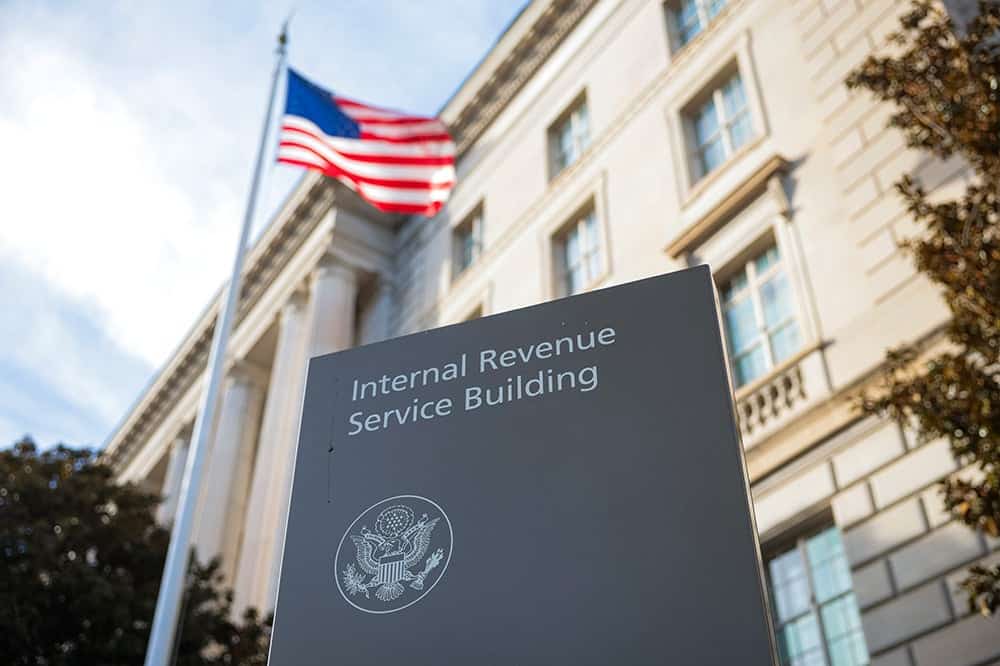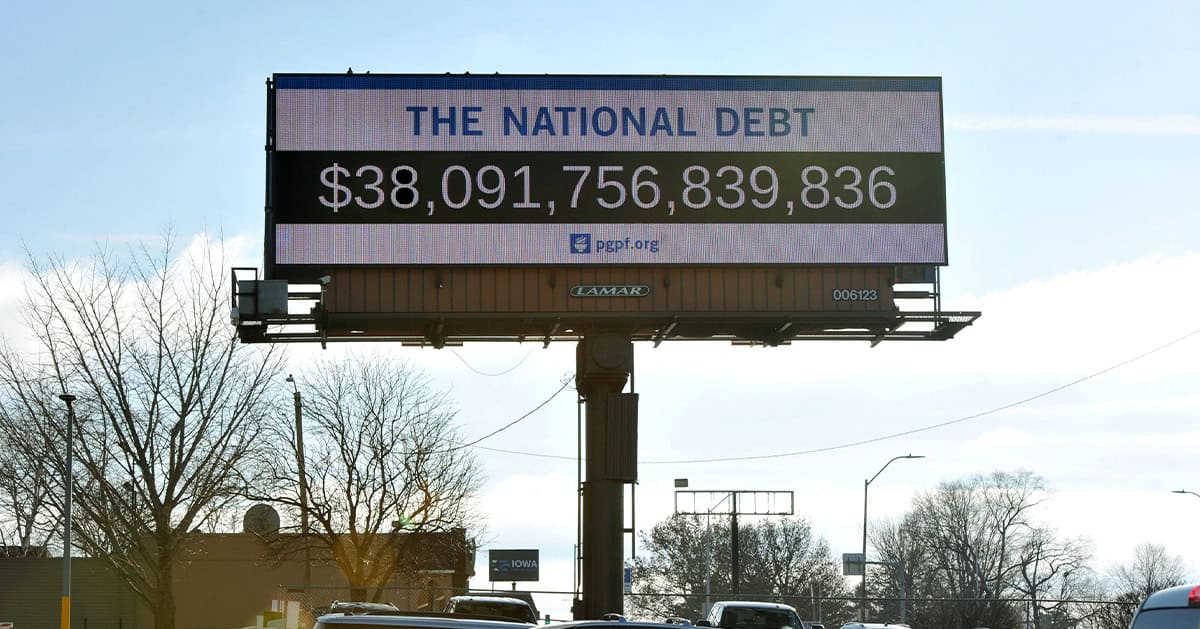Election 2024: Voters Want Candidates Ready to Act on Fiscal Issues
The April 2024 Fiscal Confidence Index is 40 (100 is Neutral). More than 9-in-10 voters seeking candidates committed to addressing the national debt, avoiding automatic cuts to Social Security and Medicare, and reforming the tax code
With election day just six months away, new polling shows overwhelming bipartisan support for candidates who are committed to solving the key fiscal challenges coming to a head starting next year. The survey finds Democratic and Republican voters are looking for leaders who will address critical issues related to the national debt, including the debt ceiling, expirations in the Tax Cuts and Jobs Act, and the rapidly depleting Social Security and Medicare trust funds. Further, April’s U.S. Fiscal Confidence Index, modeled after the Consumer Confidence Index, remained low at 40 (100 is neutral), indicating Americans’ deep concerns about the $34 trillion national debt and unprecedented interest costs on tap.
The new Peterson Foundation survey, conducted jointly by Democratic firm Global Strategy Group and Republican firm North Star Opinion Research, finds that voters across party lines believe it is important to elect candidates who are committed to:
- Reducing deficits to help lower interest rates and control inflation (96% important, including 95% of Democrats and 97% of Republicans)
- Strengthening Social Security to avoid automatic cuts to beneficiaries (95% important, including 96% of Democrats and 94% of Republicans)
- Strengthening Medicare to avoid automatic cuts that impact patient care options and costs (92% important, including 96% of Democrats and 91% of Republicans)
- Reforming the U.S. tax system to improve the fiscal outlook (90%, including 91% of Democrats and Republicans) and to ensure tax fairness (92%, including 98% of Democrats and 89% of Republicans)
- Reforming Medicaid to find savings in the program (84%, including 87% of Democrats and 85% of Republicans)
- Dealing with the debt ceiling responsibly, without risking economic damage (94%, including 95% of Democrats and Republicans)
- Addressing the $34 trillion national debt (92% important, including 90% of Democrats and 96% of Republicans)
“Today’s new survey shows that fiscal concerns are top of mind in this election, and they want leaders who are committed to solutions,” said Michael A. Peterson, CEO of the nonpartisan Peterson Foundation. “Voters understand that the next president and Congress will have to deal with the debt ceiling, trillions of dollars in tax-code expirations, and looming automatic cuts for Social Security and Medicare. There is broad support for candidates who put forward responsible, forward-looking plans to address urgent fiscal challenges and put our nation on a stronger, more sustainable path.”
Also in April, the U.S. Fiscal Confidence Index found that 84% of voters are calling on the president and Congress to spend more time addressing the national debt, with 77% of voters who believe the debt should be a top-three priority for policymakers.
The Fiscal Confidence Index measures public opinion about the national debt by asking six questions in three key areas:
- CONCERN: Level of concern and views about the direction of the national debt.
- PRIORITY: How high a priority addressing the debt should be for elected leaders.
- EXPECTATIONS: Expectations about whether the debt situation will get better or worse in the next few years.
The survey results from these three areas are weighted equally and averaged to produce the Fiscal Confidence Index value. The Fiscal Confidence Index, like the Consumer Confidence Index, is indexed on a scale of 0 to 200, with a neutral midpoint of 100. A reading above 100 indicates positive sentiment. A reading below 100 indicates negative sentiment.
Fiscal Confidence Index Key Data Points:
- The April 2024 Fiscal Confidence Index value is 40. (The March value was 38. The February value was 40.)
- The current Fiscal Confidence Index score for CONCERN about the debt is 32, indicating deep concern about the debt. The score for debt as a PRIORITY that leaders must address is 22, indicating that Americans want elected leaders to make addressing long-term debt a high priority. The score for EXPECTATIONS about progress on the debt is 64. The Fiscal Confidence Index is the average of these three sub-category scores.
- For a description of the complete methodology, see the Appendix below.
The Peter G. Peterson Foundation commissioned this poll by the Global Strategy Group and North Star Opinion Research to survey public opinion on the national debt. The online poll included 1,001 registered voters nationwide, surveyed between April 16, 2024 and April 18, 2024. The poll has a margin of error of +/− 3.1%. The poll examined voters’ opinions on the national debt, political leadership, and America’s fiscal and economic health.
Detailed poll results can be found online at: www.pgpf.org/FiscalConfidenceIndex.
About the Peter G. Peterson Foundation
The Peter G. Peterson Foundation is a nonprofit, nonpartisan organization that is dedicated to increasing public awareness of the nature and urgency of key fiscal challenges threatening America’s future, and to accelerating action on them. To address these challenges successfully, we work to bring Americans together to find and implement sensible, long-term solutions that transcend age, party lines and ideological divides in order to achieve real results. To learn more, please visit www.pgpf.org.
APPENDIX: Fiscal Confidence Index Methodology and Questions
- The Fiscal Confidence Index is released monthly by the Peter G. Peterson Foundation.
- The Fiscal Confidence Index value is based on six questions in three categories.
- As is done with the Consumer Confidence Index, the first step in calculating the Fiscal Confidence Index is determining the “Relative Value” for each question. This calculation is made by taking the positive response for each question and dividing it by the sum of the positive and negative responses. Each question was asked on a four-point scale, and answers were weighted according to intensity, with the strongest responses counting twice as much as the middle responses (“much” better or worse answers count twice as heavily as “somewhat” better or worse answers).
- The scores for the Concern, Priority, and Expectations categories are determined by averaging the scores derived from the two questions in each category.
- The Fiscal Confidence Index value is converted from the Relative Value to place it on a scale on which 100 indicates equal positive and negative sentiment, while values below 100 indicate negative sentiment and values above 100 indicate positive sentiment.
- The questions are as follows:
| CONCERN (32) | |||
|---|---|---|---|
| Thinking about our national debt over the last few years, would you say your level of concern has increased or decreased? ◊ Is that a lot or just a little? | April 2024 | March 2024 | February 2024 |
| Increased a lot | 50% | 53% | 50% |
| Increased a little | 30% | 29% | 28% |
| Decreased a little | 5% | 4% | 5% |
| Decreased a lot | 3% | 2% | 2% |
| (No change) | 8% | 9% | 11% |
| (Don’t Know/Refused) | 4% | 2% | 3% |
| INCREASED (NET) | 80% | 83% | 79% |
| DECREASED (NET) | 8% | 6% | 7% |
| When it comes to addressing our national debt, would you say things in the United States are heading in the right direction or do you think things are off on the wrong track? ◊ Do you feel that way strongly or just somewhat? | April 2024 | March 2024 | February 2024 |
| Right direction — Strongly | 9% | 8% | 12% |
| Right direction — Somewhat | 19% | 18% | 16% |
| Wrong track — Somewhat | 26% | 26% | 24% |
| Wrong track — Strongly | 42% | 44% | 43% |
| (Neither/Mixed) | 1% | 1% | 1% |
| (Don’t Know/Refused) | 3% | 4% | 4% |
| RIGHT DIRECTION (NET) | 28% | 26% | 28% |
| WRONG TRACK (NET) | 68% | 69% | 68% |
| PRIORITY (22) | |||
|---|---|---|---|
| Some people say that addressing the national debt should be among the president and Congress’ top 3 priorities. Do you agree or disagree? ◊ Do you feel that way strongly or just somewhat? | April 2024 | March 2024 | February 2024 |
| Strongly agree | 53% | 54% | 52% |
| Somewhat agree | 24% | 24% | 26% |
| Somewhat disagree | 15% | 13% | 12% |
| Strongly disagree | 3% | 4% | 4% |
| (Don’t Know/Refused) | 5% | 5% | 6% |
| AGREE (NET) | 77% | 78% | 77% |
| DISAGREE (NET) | 18% | 17% | 17% |
| And when it comes to our national debt, do you think it is an issue that the president and Congress should spend more time addressing or less time addressing? ◊ Would you say a lot (more or less) time or just a little? | April 2024 | March 2024 | February 2024 |
| A lot more time | 52% | 52% | 51% |
| A little more time | 31% | 32% | 31% |
| A little less time | 5% | 5% | 6% |
| A lot less time | 4% | 4% | 4% |
| (The same amount of time) | 3% | 3% | 3% |
| (Don’t Know/Refused) | 4% | 5% | 5% |
| MORE TIME (NET) | 84% | 83% | 82% |
| LESS TIME (NET) | 9% | 9% | 10% |
| EXPECTATIONS (64) | |||
|---|---|---|---|
| And thinking about our national debt over the next few years, do you expect the problem to get better or worse? ◊ Is that much (better or worse) or just somewhat (better or worse)? | April 2024 | March 2024 | February 2024 |
| Much better | 8% | 7% | 9% |
| Somewhat better | 20% | 19% | 15% |
| Somewhat worse | 30% | 34% | 34% |
| Much worse | 35% | 33% | 34% |
| (No change) | 2% | 3% | 3% |
| (Don’t know/Refused) | 5% | 4% | 5% |
| BETTER (NET) | 28% | 25% | 24% |
| WORSE (NET) | 65% | 67% | 67% |
| And when it comes to our national debt, are you optimistic or pessimistic that the United States will be able to make progress on our national debt over the next few years? ◊ Would you say you are very (optimistic or pessimistic) or just somewhat? | April 2024 | March 2024 | February 2024 |
| Very optimistic | 8% | 6% | 9% |
| Somewhat optimistic | 31% | 32% | 29% |
| Somewhat pessimistic | 34% | 35% | 34% |
| Very pessimistic | 22% | 20% | 22% |
| (Neither/Mixed) | 2% | 3% | 3% |
| (Don’t Know/Refused) | 3% | 3% | 4% |
| OPTIMISTIC (NET) | 39% | 39% | 38% |
| PESSIMISTIC (NET) | 55% | 55% | 55% |
Further Reading
The United States Collects Less Tax Revenue Than Other G7 Countries
The U.S. collects less tax revenues compared with other G7 countries, and that lower level of revenues is a key driver of the national debt.
Energy Tax Policy Under the OBBBA
As part of the OBBBA, lawmakers rolled back existing energy tax incentives in order to partially offset the bill’s deficit impact.
Top 10 Reasons Why the National Debt Matters
At $38 trillion and rising, the national debt threatens America’s economic future. Here are the top ten reasons why the national debt matters.


